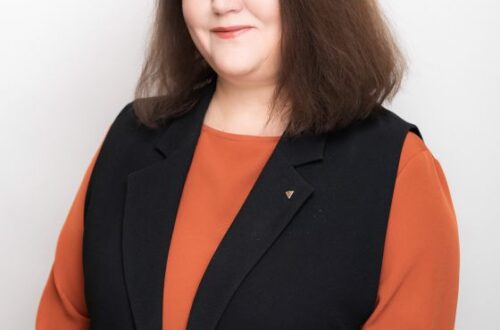At the beginning of September, leaders from the worlds of politics, business and law gathered in Vilnius for law firm’s Sorainen 30th anniversary event and to discuss the future of the region. One clear dominant theme stood out: defence. The panel discussion highlighted the view that the Baltic states, although small, must remain resilient and show that they are prepared to defend their freedom. Business and political representatives agreed that a necessary prerequisite for deterrence is the strengthening of collective defence, starting with a change in the mentality of these societies.
„Resilience is not just the task of the armed forces – it is a common cause that begins with our own attitude. The strength of our region will depend on whether we believe in our future and are prepared to defend it. If society understands that defence is a shared responsibility, we become stronger, more confident, and more attractive for investment and cooperation,” emphasised Aku Sorainen, founder of Sorainen.
Society as a pillar of defence
Reserve General Riho Terras, former commander of the Estonian Armed Forces, emphasised that modern defence cannot be viewed solely as the responsibility of the military. Estonia has created a multi-layered system in which the sectors essential in the event of war – telecommunications, energy, food and water supply, banking – will be sustained by civil institutions and private organisations. Internal security, diplomatic services, and even psychological defence are all elements that strengthen society’s preparedness and ensure that the state does not collapse even in a crisis.
Meanwhile Maris Simanovičs, a Latvian businessman recalled the experience of Ukraine: the more society is involved in preparedness, the less chaos there is at the beginning of a war. In Latvia, more and more entrepreneurs are voluntarily joining defence NGOs – Simanovičs himself is a volunteer in the Latvian National Guard. According to him, this shows that civilians can become an important support for the professional army.
In Lithuania, this trend has been reinforced in recent years by the defence technology ecosystem. According to Edvinas Kerza, former vice-minister at the Ministry of National Defence of Lithuania and now head of the Scale Wolf fund, the technology sector is coming up with more and more initiatives to strengthen the country’s resilience. From startups to innovative solutions aimed at the needs of the military and civil defence, this ecosystem shows that society is becoming an active part of it.
Accessibility of weapons: between culture and legislation
During the discussion, weapons emerged as one of the most sensitive, but also one of the most fundamental issues. Finnish investor and reserve officer Peter Fagernas pointed out that in his country, a culture of defence and ownership of weapons has been deeply rooted for decades or even centuries. Almost every man in each family joins the army, shooting and hunting remain popular activities, and civilians have participated in special defence courses since the mid-20th century. Finland has the highest number of weapons per capita in Europe – about 32 per 100 people – and is now expanding its shooting infrastructure as society actively prepares for various scenarios.
According to Simanovčius, the situation in Latvia is much more modest: only 10 weapons per 100 inhabitants and only a few shooting ranges throughout the country. In his opinion, more extensive arming of civil society and the expansion of training facilities would help reduce anxiety and increase individuals’ confidence in their abilities.
The situation in Lithuania is somewhere in between: hunting traditions have led to a relatively large number of weapons, but the relevant laws remain extremely restrictive, even against the background of the war in Ukraine, when the need for weapons has increased significantly. Kerza emphasised that simply owning firearms does not solve the problem – society must be prepared to use them responsibly.
Aku Sorainen links this topic to the broader issue of mentality. „Self-confidence affects all aspects of society, from security to the economy. Therefore, it is important that society is not only prepared to use weapons, but also understands its role in the overall defence system,” emphasised Aku Sorainen.
Conscription: challenges and opportunities
All participants in the discussion agreed that conscription is the simplest way to involve society in the defence system. Estonia is already setting an example: half of all young people there carry out military service, which not only provides the army with additional capabilities, but also builds self-confidence and creates a bond between citizens and the state.
Latvia is currently revamping its conscription system, although the process is slow: the plan was to call up several thousand conscripts each year, but in practice only a few hundred are actually starting their service each year. The goal is to reach 32,000 conscripts by 2027. Lithuania has required nine months of national service since 2015, when it was restored after the occupation of Crimea. As Kerza notes, this system does not yet cover all young people, but it has potential. Non-governmental organisations, such as the Lithuanian Riflemen’s Union, play an additional role in fostering civic awareness and patriotism.
Aku Sorainen’s insight regarding this issue is clear: without an understanding of the meaning of service, society will remain vulnerable. Some of the older generation in the Baltics have experience in the Soviet army, but young people need modern experiences and a new narrative – service as a source of pride and responsibility.
The discussion repeatedly returned to psychological preparedness. Finland and Estonia show that societal resilience begins with inner belief: confidence that the country can be defended. The Baltic countries, still living in the shadow of the trauma of occupation, sometimes tend to think more about retreat than resistance. Aku Sorainen emphasises that this attitude must change: „Self-confidence is the foundation of security. Without it, neither investment nor military capabilities will work. But with it, we can be not only safer, but also more attractive for cooperation, investment and economic growth.”
Pranešimą paskelbė: Greta Mejerytė, UAB „INK agency“







